It turns out the sounds of democracy are all rock and rule.
Japanese Ambassador Kanji Yamanouchi got the party started at Do It For Democracy last night by playing O Canada on electric guitar. Dressed in a tie and business suit, the unassuming diplomat gave a Jimi Hendrix-style performance on stage. He crushed it.
“I don’t know quite how you follow that,” said British High Commissioner Susannah Goshko as she took to the podium after the final long guitar note had faded.
OBJ360 (Sponsored)

Get more at home in Weavers Way, Almonte, by Minto
Weavers Way, Almonte, is Minto’s newest community, offering homebuyers a charming small-town lifestyle with big-city convenience. Stroll through historic made-for-the-movies downtown lined with boutiques and cafés, or explore scenic trails

Sharing “PapaJo’s” story to shine the spotlight on the Campaign to Create Tomorrow
Visitors to the seventh floor of The Ottawa Hospital’s General campus may do a double take outside Room 7123. A plaque beside the door references “PapaJo” Johns. Who, you may
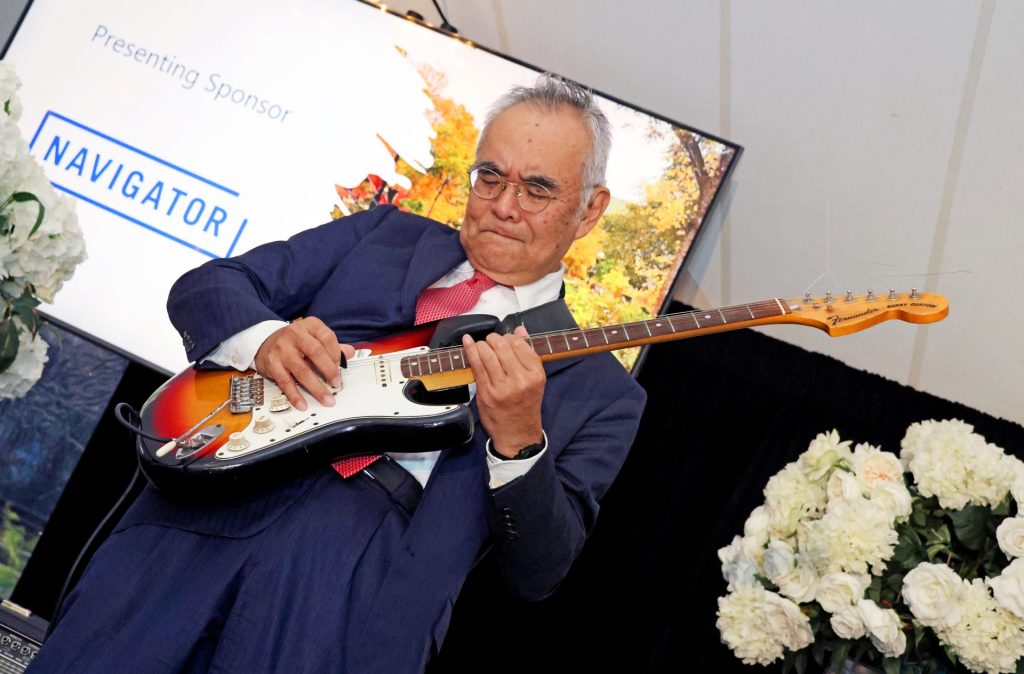
The reception was the second year the high commission hosted the gathering with the Parliamentary Centre, a non-partisan, non-profit organization dedicated to supporting inclusive and accountable democratic institutions. Guests included Foreign Affairs Minister Mélanie Joly, US Ambassador David Cohen and other heads of diplomatic missions, members of the House of Commons, senators, corporate sponsors, senior government officials, members of the news media, thought leaders and volunteers.
“The Parliamentary Centre is a model of its kind and a global leader in democracy promotion, so that’s why I’m so thrilled to welcome you all here tonight and to throw our whole-hearted support behind tonight’s event,” Goshko told her guests after speaking about the importance of strong democratic institutions and accountable governments.
On hand was Parliamentary Centre board chair Yaroslav Baran, who earlier this year co-founded a new communications firm, Pendulum Group. Joining him was his predecessor, chair emerita Maureen Boyd, founding director of the Carleton Initiative for Parliamentary and Diplomatic Engagement.
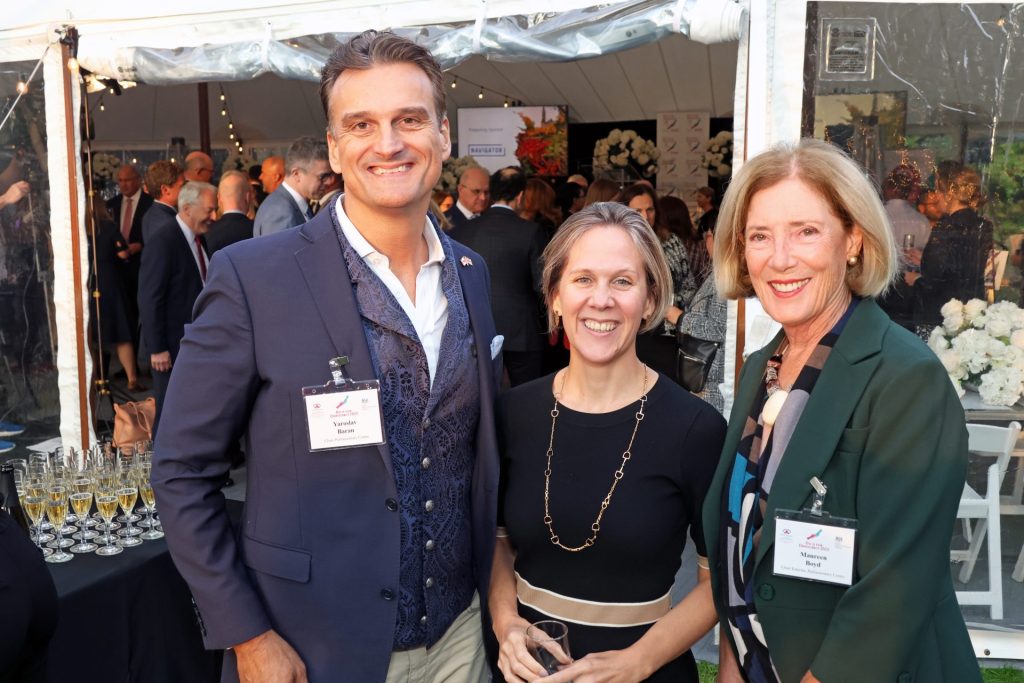
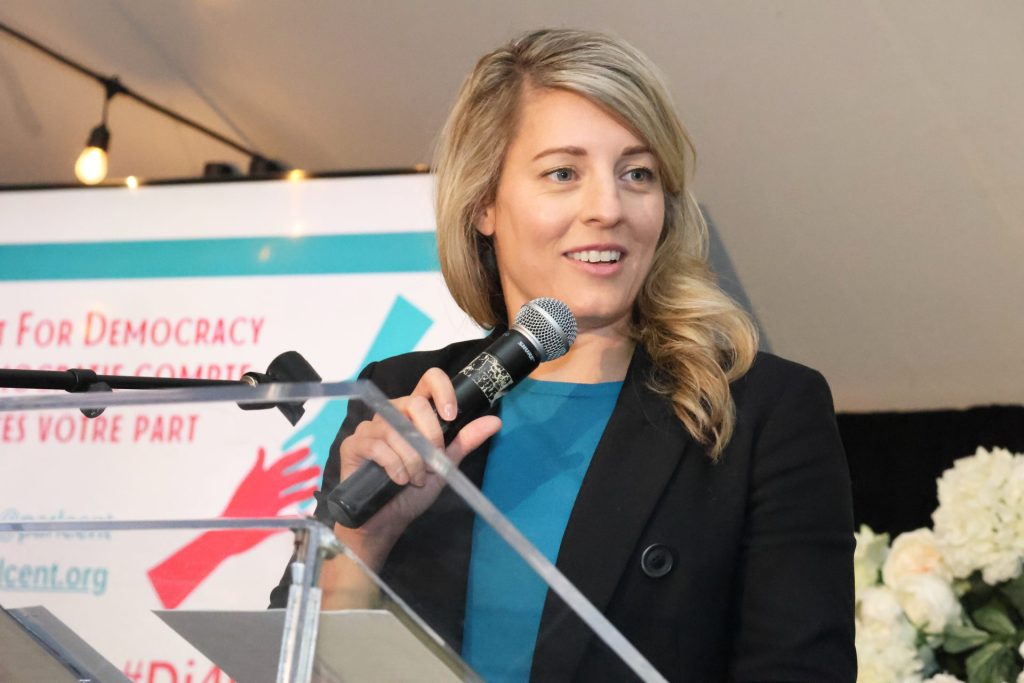

The evening honoured Joe Clark with the 2023 Because Democracy Matters award. It recognizes the manner in which he’s exemplified Canada’s global brand as a steward of inclusive and values-based democracy that defends human rights and supports the rule of law.
Clark, along with being a former prime minister, is regarded as one of the most successful foreign ministers in Canada. He was introduced to the room by his former chief of staff Graham Fox, managing principal of Navigator. The public affairs firm was a presenting sponsor with RBC Insurance.
Clark warned the crowd that his speech would be “a little more gloomy” due to current challenges to democracy. He focused on the recent results of an international poll commissioned by the Open Society Foundations involving citizens of 30 countries. While it found the vast majority of respondents would prefer to live in a democratic state, that was not the case with younger people. More than one third was supportive of military rule and felt a strong leader who did not hold elections or consult Parliament was a good way to run a country, as reported in British newspaper The Guardian.
“ ‘People around the world would want to believe in democracy but, generation by generation, that faith is fading’,” said Clark, quoting Mark Malloch-Brown, president of the Open Society Foundations.
Democracy has never been a panacea, said Clark. “But, it has often been a powerful hope, a motivating aspiration.”
The poll results, along with the rise of world-wide conflicts and of authoritarian leaders, suggests “we may be in a different era now and on a downward trend,” said Clark.

“The challenges to democracy are not all elsewhere,” Clark continued. “If you’ll allow an octogenarian to note unsettling changes in some of Canada’s most important democratic practices, I’ll list two or three.”
He spoke of how political parties were once inclusive national communities, and very often communities of difference. “I learned more about my country from my political party than from any other source. They often sought to reflect and integrate the whole country. Now they tend to reflect divisions, not commonalities, and they are largely electoral machines; as human as a lawn mower.
“A Parliament, for all of its noise and drama, was also often an instrument of critical consensus on issues capable of deep division,” said Clark. “Cabinets and party caucuses were often, at an earlier time, genuinely consensual and inclusive, and I’m struck now by the number of able ministers and other parliamentarians who choose to leave or, no doubt, able candidates who choose not to run.
“That’s a major problem for a country like ours because the challenges upon Parliamentary government are strong enough already, but if they are undermined by a decline in the capacity of some of the best of our citizens to serve in public life, that is a major challenge.”
While Canada shares the challenges of democracy with the wider world, its distinction remains its instinct and capacity to address and meet those inherent democratic challenges, said the Canadian statesman. “That instinct remains a critical contemporary feature of Canada and role for us in the days to come and, of course, is at the very centre of the work of the Parliamentary Centre.”
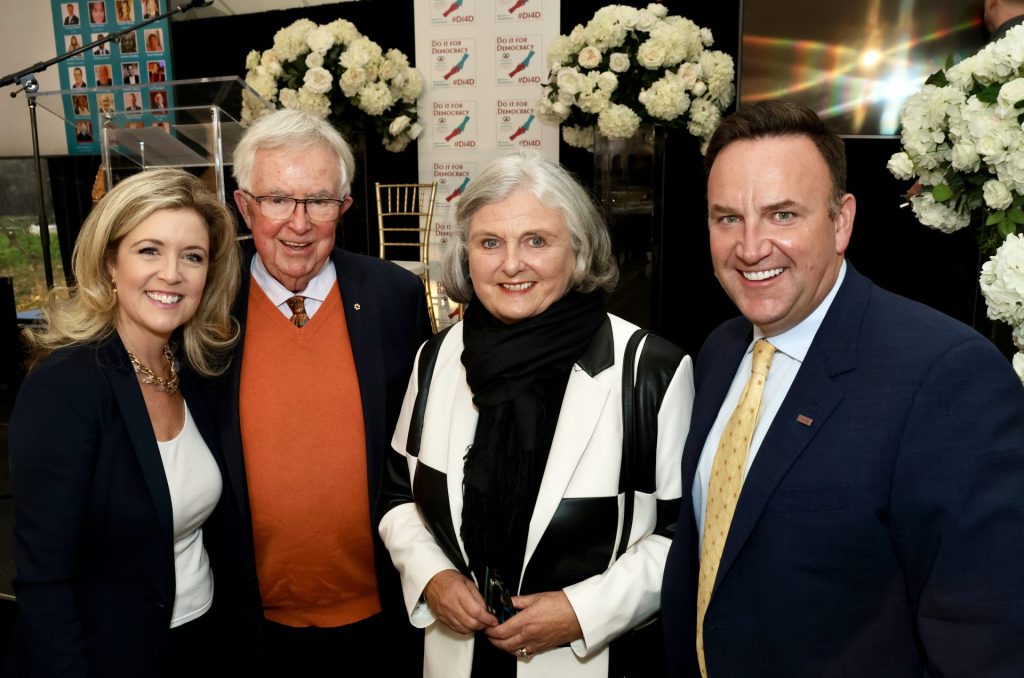
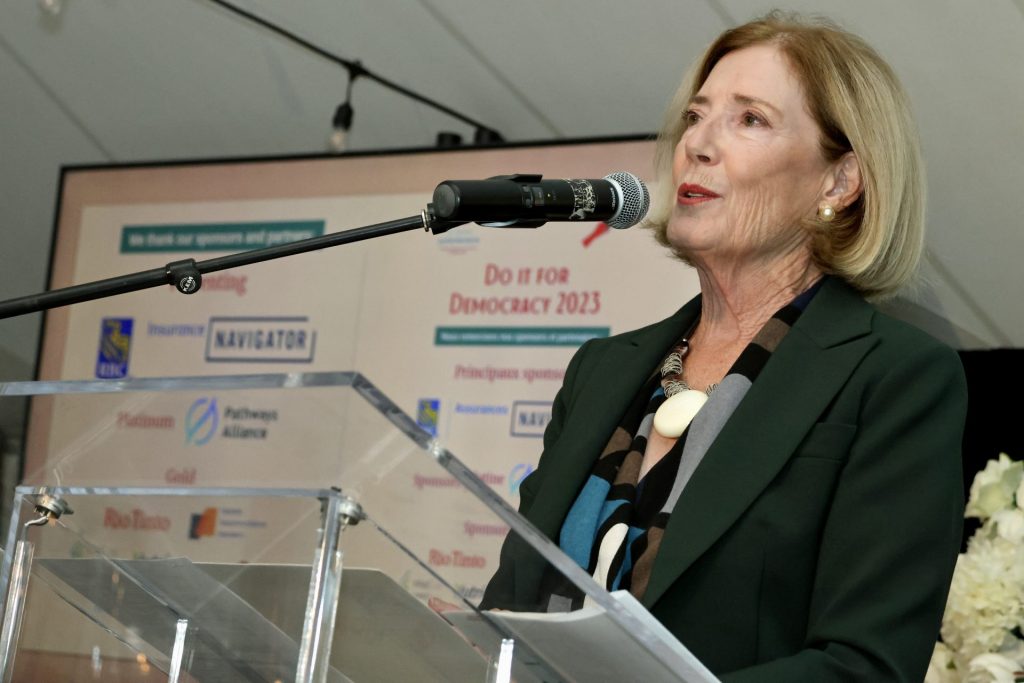

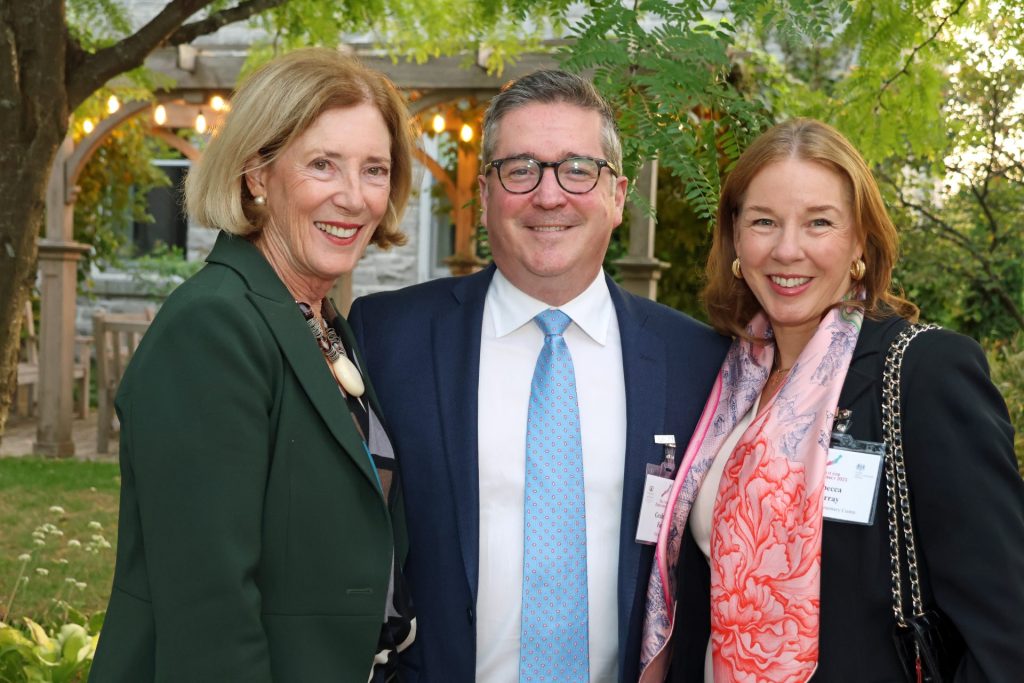
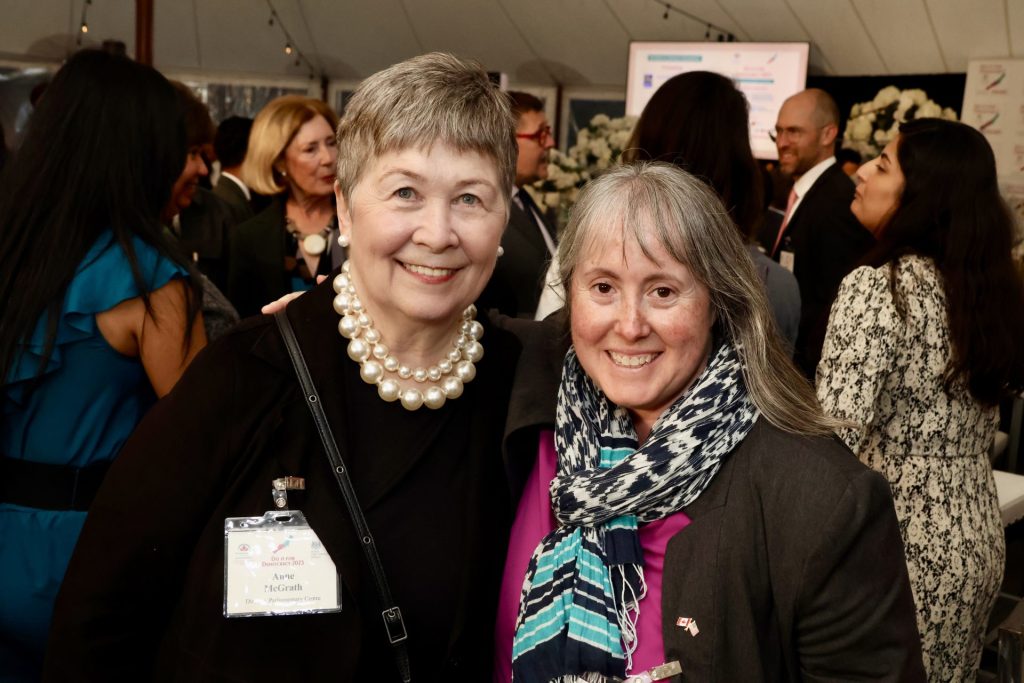
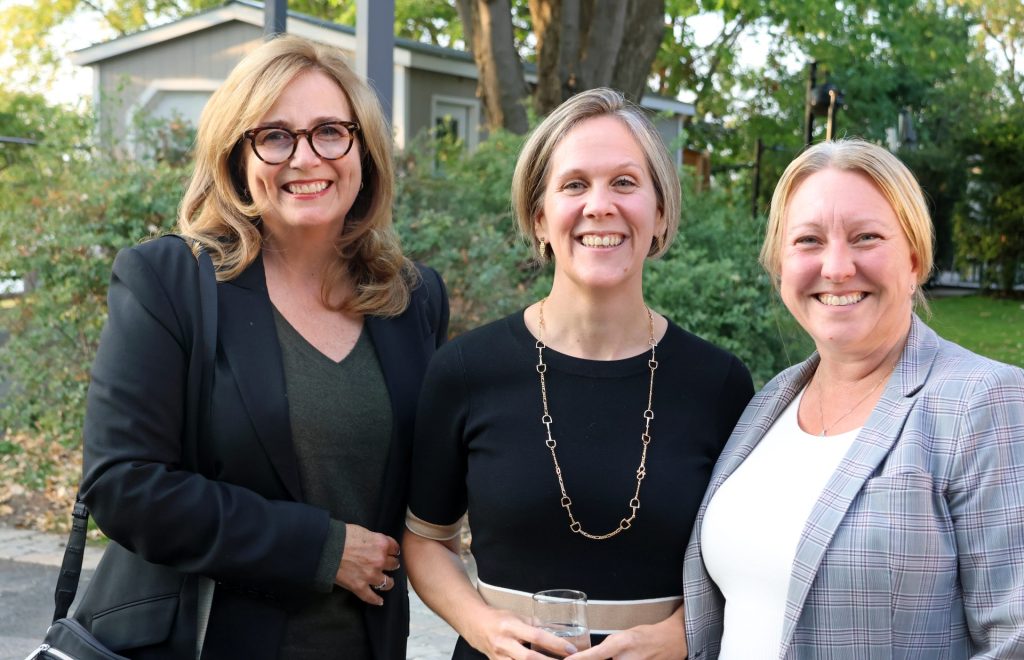


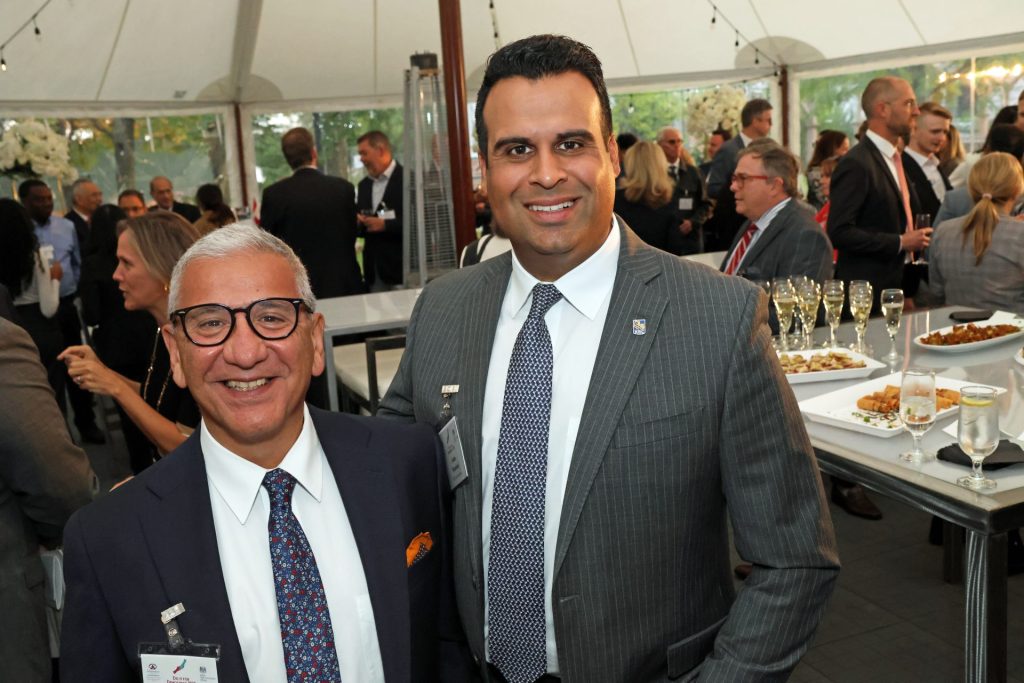

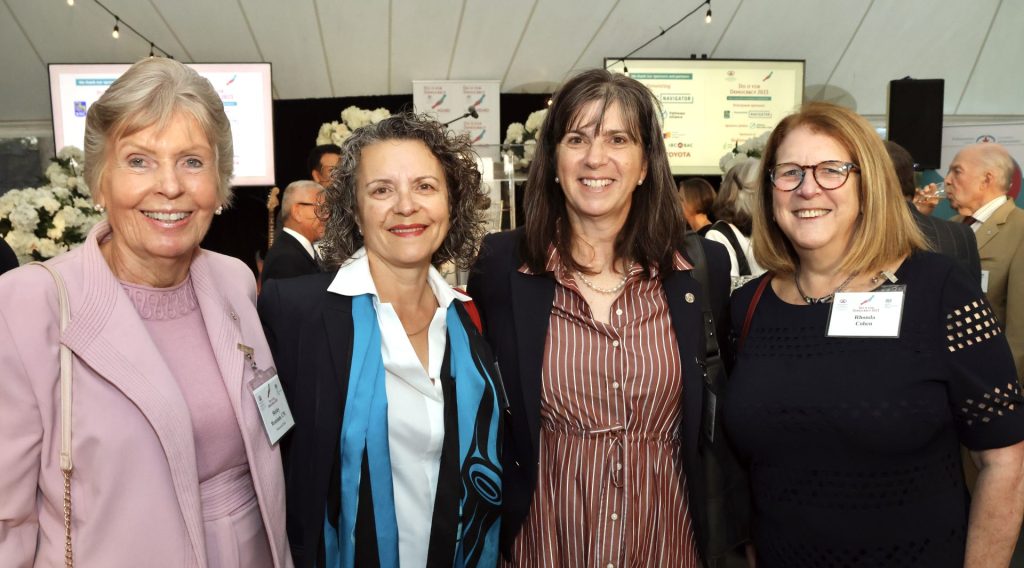

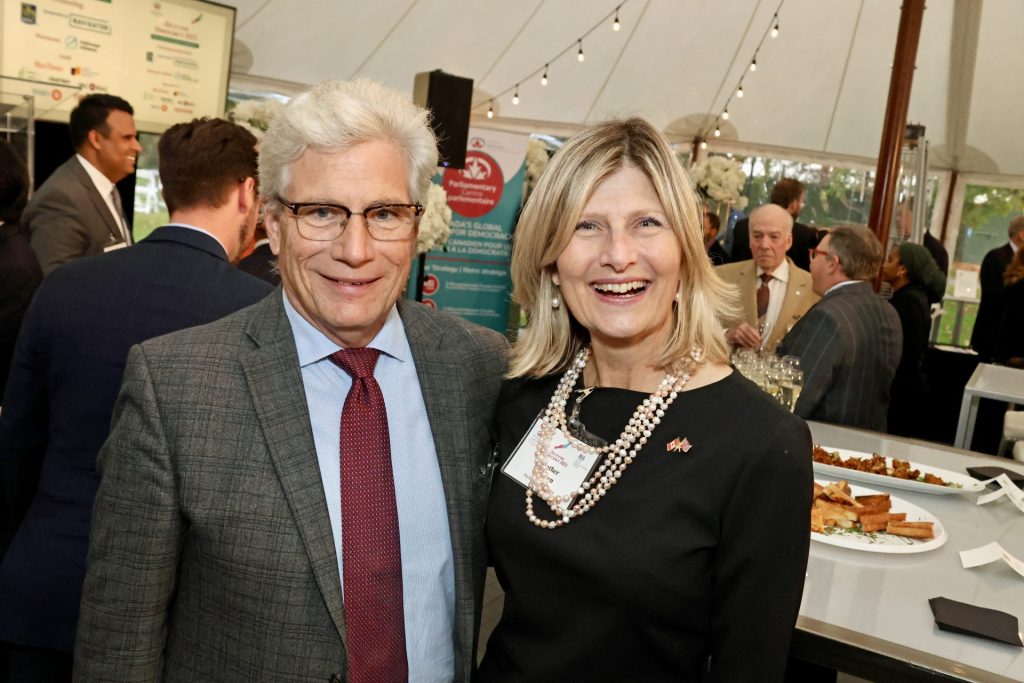
The room heard from Parliamentary Centre executive director Tom Cormier about the work the organization is doing, including providing support to the Ukrainian Parliament as the Russian-Ukraine war continues.
“I’ve never seen a time this difficult for democracy around the world,” he said. “Really, it is a calling of a lifetime to be more active and to be more engaged.
“Autocracies like China and Russia are absolutely undermining the legitimacy of our democratic values and norms in global politics and here at home, and in democracies around the world,” said Cormier. Free countries “need to redouble efforts to prioritize democracy support so that we can demonstrate why it matters.”
The reception included a special wine tasting involving the British, Australian and New Zealand high commissions, the embassies of Chile, Germany, Italy, Spain and the United States, and Canada’s Peller Wine Estates.
Embassies also contributed to the silent auction by offering to host group dinners. As well, there was a trip to Whitehorse, courtesy of Air North, and a United Nations headquarters tour and lunch with Bob Rae, Canada’s ambassador to the UN and the 2022 Because Democracy Matters Award recipient.
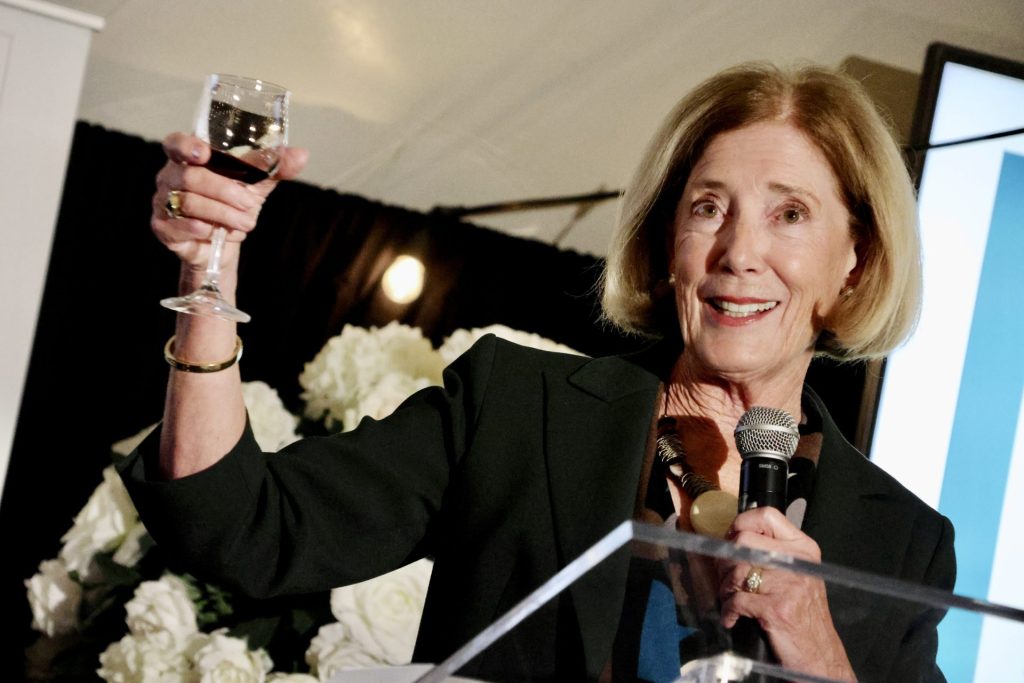
caroline@obj.ca



